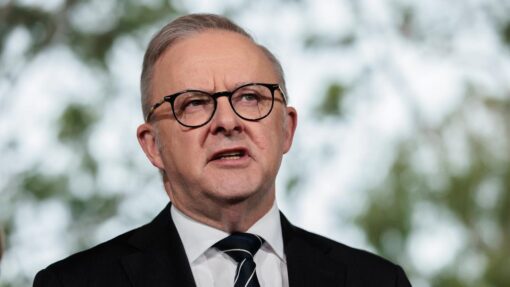Economic summit aims to firm up drooping productivity
Andrew Brown |

An economic summit on lifting lagging productivity rates can serve common interests for the business sector and unions, the prime minister says.
Anthony Albanese has announced plans for a productivity roundtable in August in Canberra to shape the nation’s economic growth.
Experts have expressed concern about Australia’s lagging rate of productivity, a key economic measure of efficiency and long-term driver of improved living standards.

Despite criticism previous economic summits were too slanted towards unions, Mr Albanese said outcomes from the roundtable had not been decided.
He called for a mature discussion from all parties, noting it was in everyone’s interest for productivity to improve.
“We’re a Labor government, we support unions existing … but we will always respect both the role of business and the role of unions,” he told the National Press Club on Tuesday.
“There are common interests … you don’t get union members unless you’ve got successful employers.
“It’s the private sector that drives an economy. What the public sector should do is facilitate private sector activity and private sector investment.”

The Productivity Commissioner’s most recent report showed labour productivity fell 0.1 per cent in the December quarter and dropped 1.2 per cent in the past year.
The Business Council of Australia says productivity growth over the past decade has been the lowest in 60 years.
Council chief executive Bran Black welcomed the roundtable, saying “lifting business investment is essential to boosting productivity, lifting real wages, creating jobs and ensuring more opportunity for more Australians”.
“We will continue to be very clear about policies that the business community believes will be counterproductive to improving productivity,” he said.

Mr Albanese said he wanted a boost to productivity, alongside other economic indicators as part of his second-term agenda.
“We want to build an economy where growth, wages and productivity rise together,” he said.
“The starting point for our government is clear. Our plan for economic growth and productivity is about Australians earning more and keeping more of what they earn.”
ACTU secretary Sally McManus said working Australians must be at the centre of the roundtable.
“We need to leave behind the idea that productivity is equated with cutting pay and making people work harder for less,” she said.
“We have a common interest in addressing the challenges we face and when we work together our country is at its best.”
Australian Chamber of Commerce and Industry chief executive Andrew McKellar said boosting productivity was essential for economic growth.
“The business community looks forward to participating in the summit and contributing constructive and sensible ideas to address the problem,” he said.

Shadow treasurer Ted O’Brien said the roundtable could amount to nothing but a talkfest.
“Anthony Albanese has actively sought to undermine productivity by abolishing structures to drive it,” he said.
“He also saddled the economy with thousands of new regulations in the last parliament.
“If this change of heart by Labor is true, it will be akin to turning around the Titanic.”
The prime minister announced Jenny Wilkinson would become the first female Treasury secretary.
Ms Wilkinson, who heads the Department of Finance, will replace Steven Kennedy, who will become the nation’s most senior public servant as head of the Department of the Prime Minister and Cabinet.
They will begin their new roles on Monday for five-year terms.
AAP


